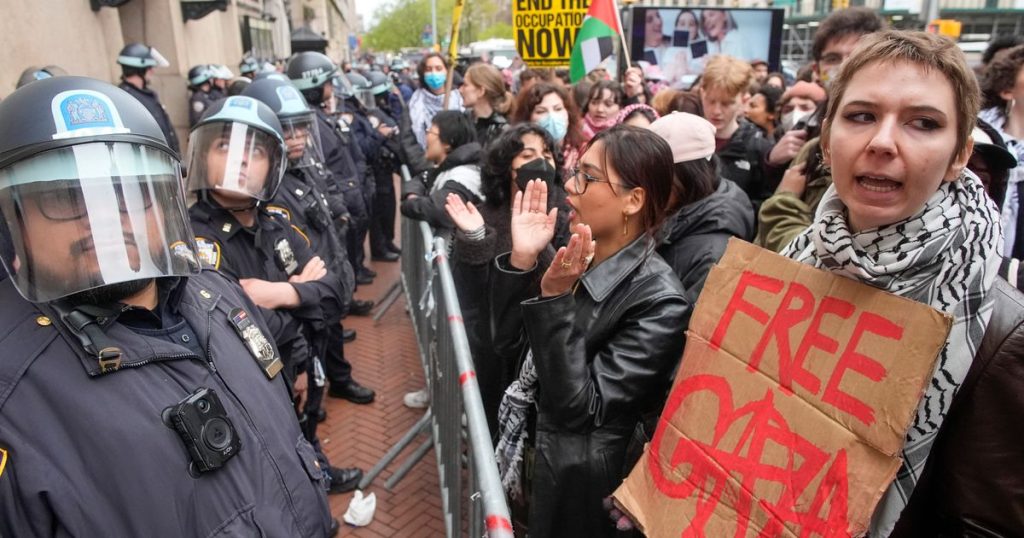Columbia University and other U.S. college campuses are grappling with tensions over Israel’s war in Gaza, leading to cancellations of in-person classes and protests on campus. At Yale University, dozens of protesters were arrested after setting up encampments and defying warnings to leave. Similar demonstrations have taken place at universities including the University of Michigan, MIT, and the University of North Carolina. These events coincide with the start of the Jewish holiday of Passover and have led to safety concerns for Jewish students on campus.
Columbia President Minouche Shafik announced that all classes would be held virtually on Monday to deescalate the situation and give time for a resolution to be found. She acknowledged the deep distress many are feeling over the Middle East conflict, but emphasized the importance of not allowing one group to disrupt important milestones like graduation to push their viewpoint. A working group of deans, school administrators, and faculty will work towards finding a resolution to the university crisis, although no timeline for resuming in-person classes was provided.
At Yale, about 45 protesters were arrested for misdemeanor trespassing after setting up tents on campus and calling for divestment from defense companies doing business with Israel. Yale President Peter Salovey warned that actions violating university policies and guidelines create safety hazards and impede the university’s work. Despite warnings and conversations with protesters over the weekend, police moved in on Monday morning to arrest the protesters, who were released on promises to appear in court later.
The tensions on college campuses over the Israeli-Palestinian conflict have also led to other actions, such as the University of Southern California canceling a planned commencement speech by its valedictorian who had publicly supported Palestinians. The decision was made citing security concerns, receiving praise from some pro-Israel groups but criticism from free-speech advocates. These events highlight the complexities and challenges faced by universities in addressing and managing conflicts and disagreements among students and stakeholders.
The demonstrations and arrests on college campuses raise questions about free speech, safety, and the role of universities in managing conflicts related to international conflicts like the Israeli-Palestinian conflict. University officials must balance the rights of students to express their viewpoints with the need to maintain safety and uphold policies and guidelines that govern campus activities. The use of arrests and cancellations of events as responses to protests reflect the challenges universities face in finding a balance between allowing freedom of expression and ensuring the well-being of their campus communities.
As tensions continue to grow on college campuses over the Israeli-Palestinian conflict, universities must navigate complex issues related to free speech, safety, and the management of campus activities. The actions taken by Columbia University, Yale University, and other institutions reflect the challenges faced by universities in addressing conflicts among students and stakeholders. Finding a resolution to the protests and disruptions while upholding the values of free speech, safety, and academic freedom will require ongoing dialogue, collaboration, and sensitivity to the diverse perspectives and experiences of students, faculty, and staff affected by these events. Greater understanding, communication, and empathy will be essential in addressing and resolving the tensions and disagreements arising from international conflicts like the Israeli-Palestinian conflict.


